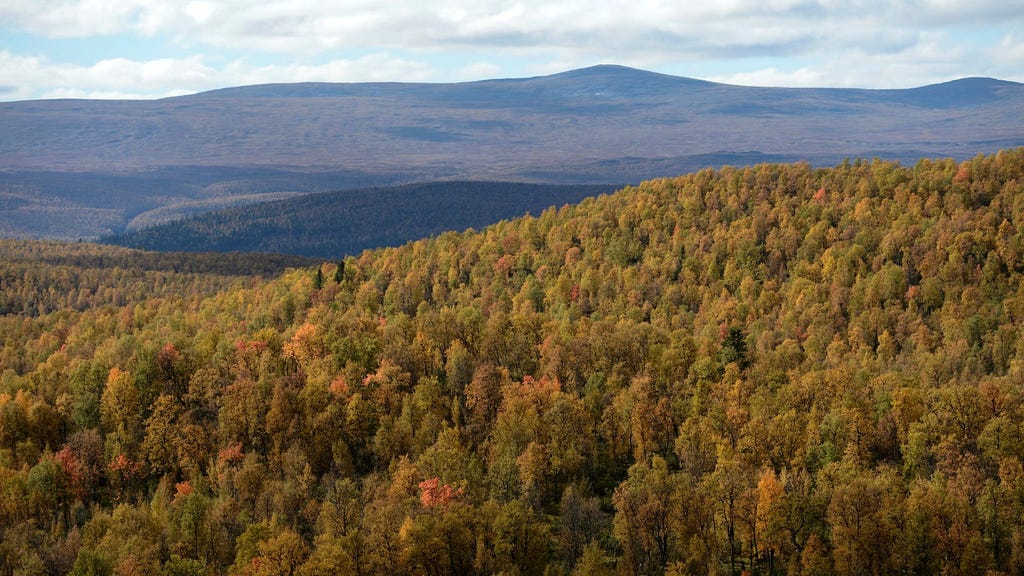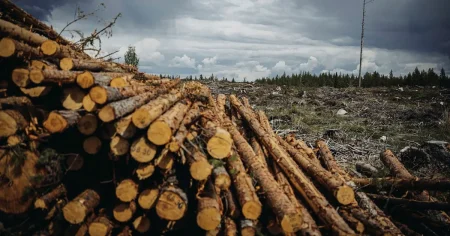The Swedish Minister for the Environment’s trip to Colombia to champion biodiversity conservation contrasts sharply with a looming threat to a unique ecosystem back home: the Swedish mountain forests. These high-altitude woodlands, a rarity in Western Europe, are facing increased pressure from logging interests. A current government investigation, the details of which have been revealed by Dagens Nyheter (DN), proposes easing restrictions on felling in these sensitive areas. This move has sparked alarm among scientists who warn of potentially irreversible damage to these fragile ecosystems.
The Swedish mountain forests represent a vital reservoir of biodiversity, harboring a unique blend of flora and fauna adapted to the harsh, high-altitude conditions. These forests, characterized by slow-growing, old-growth trees, offer crucial habitat for a range of species, some of which are found nowhere else. They also play a critical role in regulating water flow, preventing soil erosion, and sequestering carbon, thereby contributing significantly to the local and global climate. The proposed deregulation, driven by the timber industry’s pursuit of economic gain, poses a substantial threat to this delicate balance. Weakening protective measures could lead to increased logging, fragmenting the forest landscape and disrupting the intricate web of life that depends on it.
The scientific community has voiced strong opposition to the proposed changes, emphasizing the irreplaceable nature of these ancient forests. The slow growth rates of trees at high altitudes mean that recovery from logging takes considerably longer than in lowland forests. Decades, even centuries, are required for these ecosystems to regain their original structure and complexity. The removal of old-growth trees, in particular, represents a significant loss of biodiversity as these trees provide unique habitats for a variety of specialized species, including lichens, fungi, and insects. Furthermore, increased logging activities can lead to soil disturbance, increased erosion, and altered water flow patterns, potentially impacting downstream ecosystems and water resources.
The push to deregulate logging in the Swedish mountain forests seems to prioritize short-term economic gains over long-term ecological sustainability. While the timber industry argues that sustainable logging practices can minimize environmental impacts, scientists caution that the unique characteristics of mountain forests make them particularly vulnerable to disturbance. The current regulations are designed to protect these sensitive ecosystems, and weakening them could have far-reaching consequences, potentially undermining Sweden’s commitment to biodiversity conservation and its international reputation as an environmental leader. The government’s apparent willingness to consider these changes, despite the scientific consensus on the ecological importance of these forests, raises concerns about the influence of industrial lobbying on environmental policy decisions.
The juxtaposition of the Environment Minister’s international efforts to protect biodiversity with the simultaneous threat to Swedish mountain forests highlights a troubling inconsistency in the government’s approach. While advocating for the preservation of biodiversity abroad, the government seems prepared to sacrifice a unique and valuable ecosystem at home. This apparent contradiction underscores the need for a more holistic and integrated approach to environmental policy, one that prioritizes the protection of all ecosystems, regardless of their economic value. The focus should be on long-term sustainability, ensuring that the ecological integrity of these forests is preserved for future generations.
The ongoing debate over the future of Sweden’s mountain forests exposes a fundamental tension between economic interests and environmental protection. The government’s proposed deregulation, driven by the timber industry’s desire for increased access to resources, threatens to undermine decades of conservation efforts. The scientific community’s warnings about the irreversible damage that could result from increased logging should be heeded. Protecting these unique and valuable ecosystems requires a commitment to long-term ecological sustainability, even if it means foregoing short-term economic gains. The Swedish government must recognize the importance of these ancient forests and prioritize their protection, demonstrating a genuine commitment to biodiversity conservation both at home and abroad. The future of these fragile ecosystems, and the rich tapestry of life they support, hangs in the balance.














